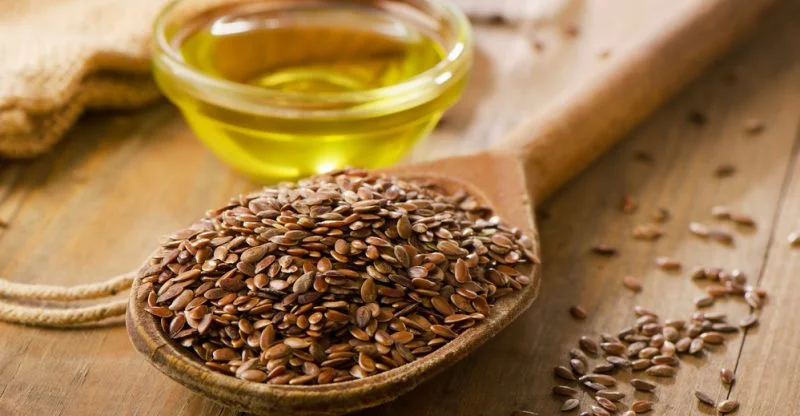Flax seeds and flaxseed oil has been known throughout history. While flaxseed oil first originated in ancient Mesopotamia, but flax seeds have been known since the Stone Age. The ancient Greeks were among the first to use the flax seed in cooking, and both the ancient Greeks and the ancient Romans prized the flax seed and its flaxseed oil for its health benefits and its good taste. Following the collapse of the Roman civilization the cultivation of the flax plant declined substantially.
It was the emperor Charlemagne who would return flax seeds to their former high position in culinary culture. Charlemagne was impressed not only with the culinary and medicinal uses of the flax plant but with its usefulness as a fiber as well. Flaxseed fibers can be woven into linen, and Charlemagne pass laws that required both the cultivation of the flax plant and the consumption of flax seeds and flaxseed oil. As a result of Charlemagne’s efforts, flax seeds and flaxseed oil become widely used throughout Europe.
Flax plants were not cultivated in North America until the 17th century, when flax plants were planted in Canada. To this day, Canada remains the leading producer of flax seeds and flaxseed oil.
Major benefits of flax and flaxseed oil
Flax seeds and flaxseed oil are rich in an omega-3 fatty acid known as alpha linolenic acid, which is a precursor to the beneficial fat known as EPA found in fish. This fatty acid provides many of the same benefits to those found in the best fish, including important benefits such as protecting the heart from damage. Omega-3 fatty acids are among the most important heart protectors, and flaxseed oil contains abundant quantities of these important fatty acids.
In addition, flaxseed oil is thought to provide important anti- inflammatory benefits, making it useful for such conditions as asthma, osteoarthritis, rheumatoid arthritis and even migraine headaches. Flaxseed oil may even be protective against many forms of cancer, and flaxseed oil is being studied for its possible cancer fighting properties.
The omega-3 fatty acids contained in flaxseed oil are also thought to play an important role in protecting cell membranes from damage. These cell membranes represent the cell’s best protection, and they serve to allow in needed nutrients while keeping out harmful microbes and accumulated wastes.
Flax seeds also provide a rich source of dietary fiber, thought to play an important role in preventing cancer, heart disease and many other common diseases. Dietary fiber is thought to play an especially important role in preventing colon cancer, and those at highest risk for this disease are urged to eat plenty of fiber rich foods, including flax seeds and flaxseed oil.
Flax seeds and flaxseed oil are also thought to be effective at warding off the chronic and annoying condition known as dry eyes. Dry eye syndrome is thought to affect over 10 million Americans every year, and the traditional treatment of artificial tears is able to provide only temporary relief. Recent studies have shown that the consumption of flaxseed oil may be able to reduce the incidence and severity of dry eye syndrome.
Additional information:
Flax seeds can be purchased either as whole seeds or in ground varieties. Although ground flax seeds are easier to use and more convenient, the whole seeds have a longer shelf life.
Whole flax seeds are available both in prepackaged containers and in bulk bins in many natural grocery stores. When purchasing flax seeds from bins, it is important to make sure that the bins provide a secure cover, and that the flax seeds they contain are fresh. It is also important to store whole flax seeds in an airtight container, and to keep them in a dark, dry and cool place. Flax seeds stored in this manner can keep for several months.
Ground flax seeds are available in both refrigerated and non- refrigerated varieties. It is important to buy ground flax seeds in vacuum packed containers and to refrigerate them after the package has been opened. It is important to keep ground flax seeds refrigerated in order to prevent them from becoming rancid.
Like ground flax seeds, flaxseed oil is quite perishable and is best purchased in opaque bottles that have been kept refrigerated. Quality flaxseed oil will have a sweet and nutty flavor. Flaxseed oil should never be used for cooking, but only added to foods after they have been heated.
Originally posted 2019-11-08 13:31:30.

